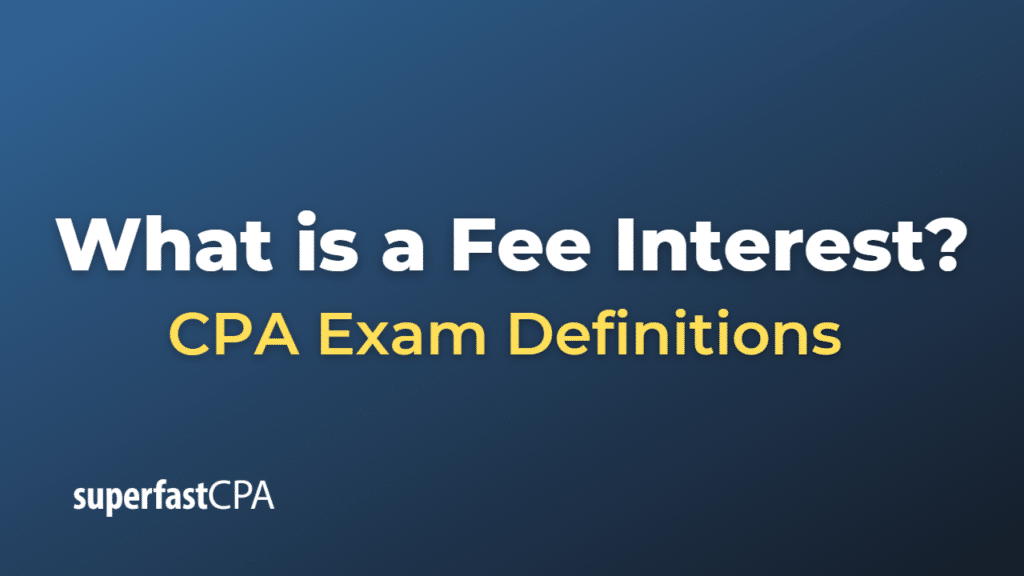Fee Interest
“Fee interest” or “fee simple interest” is a legal term used in real estate to describe the most complete form of ownership or rights one can have in property. The term “fee” comes from old English law, where it signified inheritable land, and “simple” means without restriction to any particular class of heirs.
A fee simple interest represents absolute ownership of the property and entitles the owner to all rights to the property, unrestricted except by public law. This means the owner has the right to sell it, lease it, bequeath it to a designated heir, or even alter it beyond recognition. The rights also extend below the ground (mineral rights) and above the property (air rights).
The fee simple owner’s rights to the property are indefinite and can be passed along to heirs. If the owner dies without a will and without any legally recognized heirs, the property “escheats,” which means it reverts to ownership by the state.
While fee simple is the most comprehensive form of property ownership, it’s important to remember that it’s still subject to governmental regulations such as zoning laws, restrictions, and obligations to pay property taxes. Failure to comply with these could lead to fines, penalties, or even loss of the property.
Example of a Fee Interest
Imagine you purchase a home, and you acquire it as a fee simple interest. This means you have the absolute ownership of that home. You have the right to live in it, rent it out, sell it, or pass it along to your children when you pass away. You could even tear down the house and build a new one, if you like.
As part of this ownership, you also have the rights to what’s below the ground (like oil or minerals) and the airspace above your house. However, these rights are subject to laws and regulations. For instance, you can’t dig for oil in your backyard without the appropriate permits, and you can’t build a tower that infringes on the airspace of flights above your property.
At the same time, you’re also responsible for paying property taxes and maintaining the property in accordance with local laws and regulations. If you fail to pay your taxes, the local government could place a lien on your property or even seize it.
And if you pass away without a will or heirs, your home would escheat, or revert to the state’s ownership.
This example illustrates the breadth of rights and responsibilities you have when you own property in fee simple.













